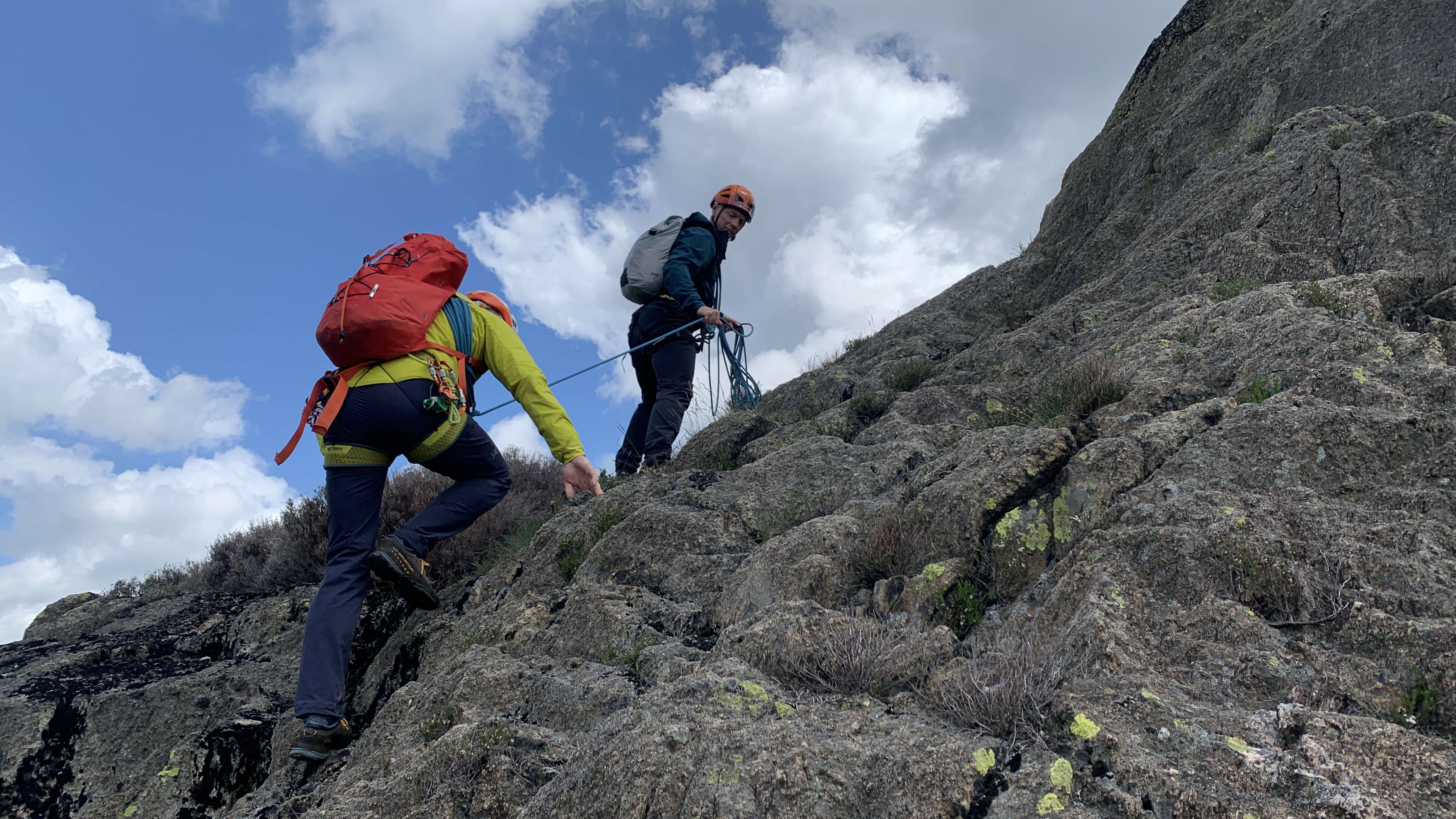
Encountering obstacles to getting into a sport like rock climbing isn’t exactly unusual. You're not likely to have the right gear, you don’t know where to go and when you do get out there, you don’t know what you’re doing. Just to add insult to injury, none of your friends are climbers. Oh, and then there’s that little detail of weather – rain and rock climbing don’t exactly go hand in hand.
I was one of the lucky ones, growing up in the 1990s when outward bounds trips for high schoolers were still publicly funded, and I had my first taste of getting on belay as a young teenager in the mountains of Scotland. I kept it up at a local indoor climbing wall for a few months, then went off to university and it would be over a decade till I squeezed my feet into a pair of climbing shoes again.
When I moved to Colorado in my late 20s, my friends spent their summers at the crag, so I quickly got myself a harness, helmet and shoes and spent the next ten years making up for lost time by multi-pitch climbing around Colorado and Utah.
I was fortunate to have friends who were pretty good climbers show me the ropes, literally, but needless to say I picked up some bad habits along the way, as we usually do when we learn from friends. Add to that the fact that, since moving back to Scotland, I’ve failed to find a climbing community, largely due to my own lack of trying, and I’m getting a little rusty.
So when I was offered the chance to attend this year’s Arc’teryx Climb Academy, I jumped. This edition of the outdoor brand’s Academy series takes place in the Lake District, which if you don’t already know is England’s largest National Park. It’s known for its glaciated lakes and rugged peaks, so it would be appealing on its own, but last year I went to the Alpine Academy in Chamonix and it was one of my best outdoor experiences yet, so my hopes were high that this would be another winner.
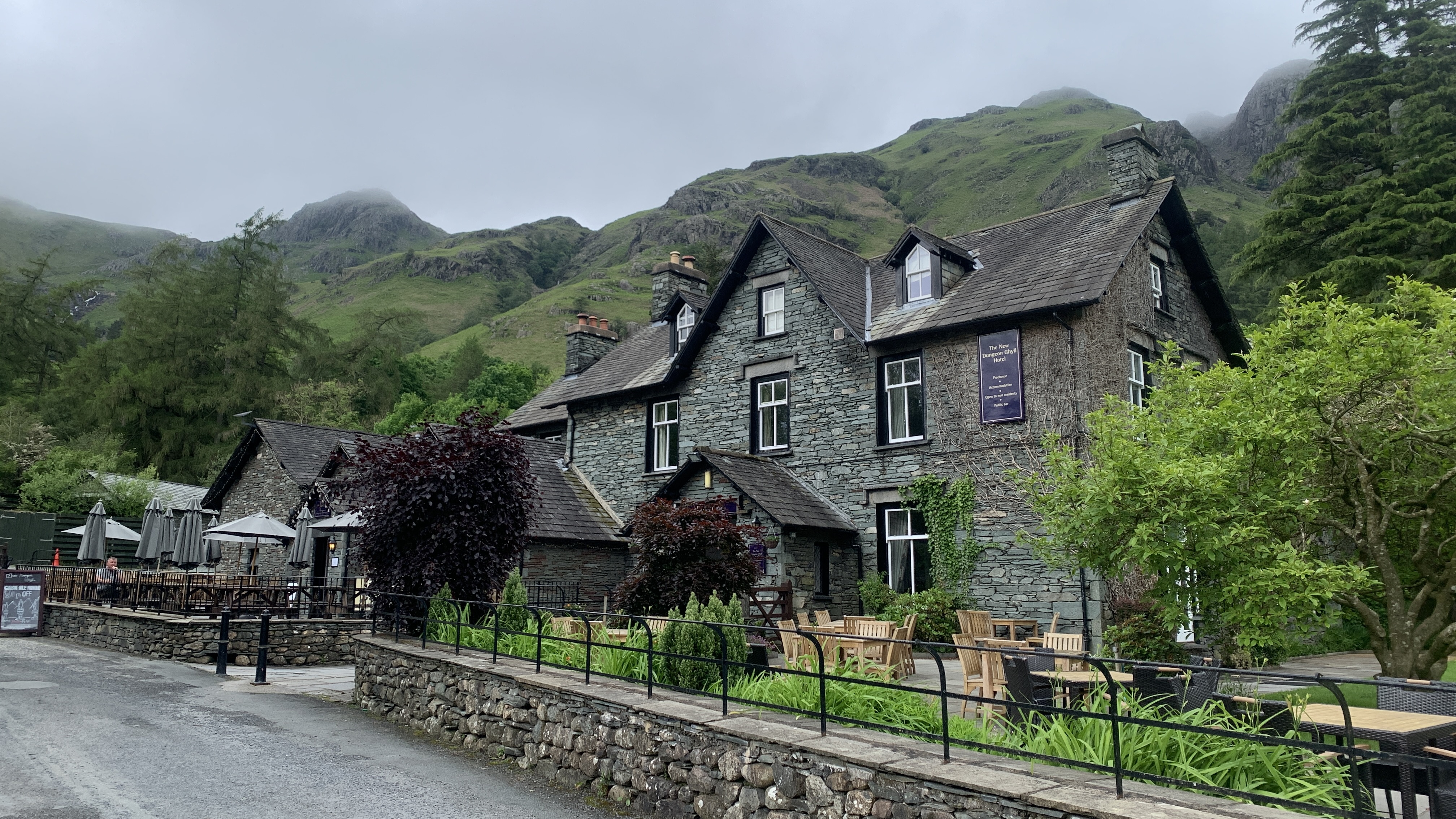
It may not be totally clear by the name – in fact, you’d be forgiven for thinking that the event is for elite climbers – but the Arc’teryx Climb Academy is really about dissolving those barriers many of us experience in getting out on the rock in the first place. Specifically, it’s a place where you have access to gear, learn new skills and meet like-minded people.
I arrive at the festival a day early while things are still getting set up and discover my lodgings for the weekend, the New Dungeon Ghyll Hotel, in a historic 1830s farmhouse. Next door is the Sticklebarn, an iconic pub and events space where the festival base camp is setting up on the patio and campers are beginning to pitch their tents. Beyond that, as far as the eye can see stretches the bucolic Great Langdale valley, a broad, glacial valley with exceptional views of the surrounding peaks and a popular setting for hikers and climbers.
In the morning, I set off on my first clinic, a hike taking in waterfalls and scrambling that starts and ends from base camp and in which we’ll be learning some basic map reading and navigation skills. I’m amongst an eclectic group of enthusiastic hikers and climbers, many of whom have come from urban areas and are keen to gain more mountain skills.
It’s not long before I discover that the man walking next to me is Haroon Mota, Arc'teryx ambassador and founder of the famed Muslim hikers group and we fall behind the group for a while as we chat about his mission to get more people of color outdoors using the tools of safety, confidence and community.
“There’s a lot of power in community, and that’s what we’re seeing. People don’t just want to get outside, they want to connect with others,” says Mota, a marathon runner and mountaineer who now organizes some of the largest hiking events in the UK.
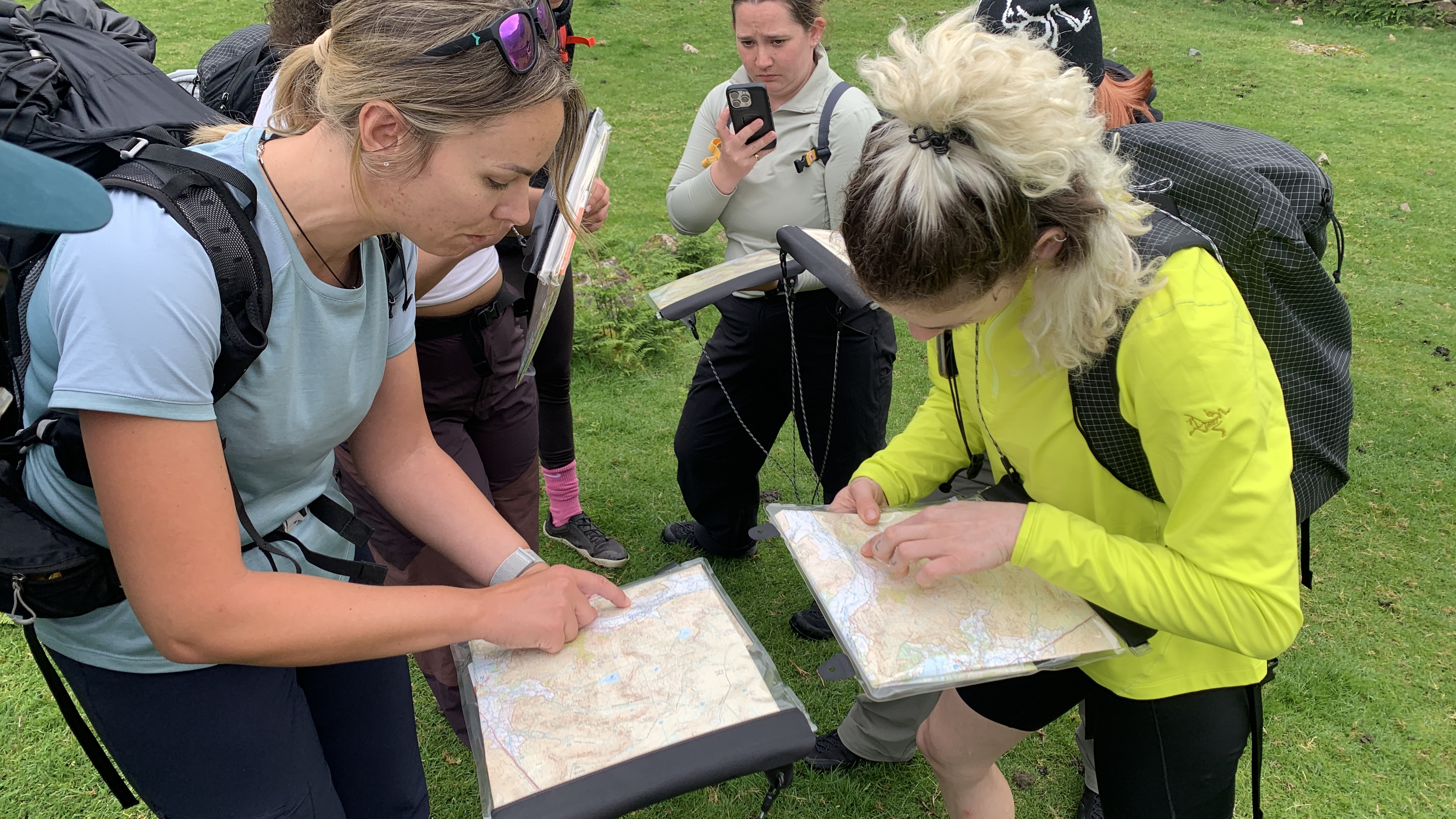
Our hike ends at Stickle Tarn, a picturesque dammed lake where we strip off, pull on our water shoes, and cold water swim coach Gilly McArthur guides us in an extremely icy dip. McArthur, who’s preparing to start clinical research on the benefits of cold water immersion with the NHS, explains that just six cold water sessions in close proximity effectively blunt the effect of the cold and make it more tolerable.
Together we sink in up to our shoulders, breathing deeply to regulate our nervous systems against the chill, then it’s time to sprint out, dry off and head back to base camp to warm up.
The next day, the festival is in full swing when I walk over to base camp after breakfast and excited climbers are milling around, grabbing granola bars, fruit and sandwiches from the lunch table and meeting their guides for the day. I’m signed up for roped scrambling but have managed to forget my helmet and harness. Like I said, I’m rusty. No worries, though, I just make a beeline for the free gear library where I rent brand new gear from Arc’teryx for the day.
This clinic involves a 10-minute drive and our group of six piles into our guide’s van where I chat with fellow attendees. Among them, a PhD candidate from Liverpoool who goes caving on her weekends and drove over just for this clinic and a new rock climber who’s recently moved to the Lake District and is hoping to gain skills and meet other people to climb with.
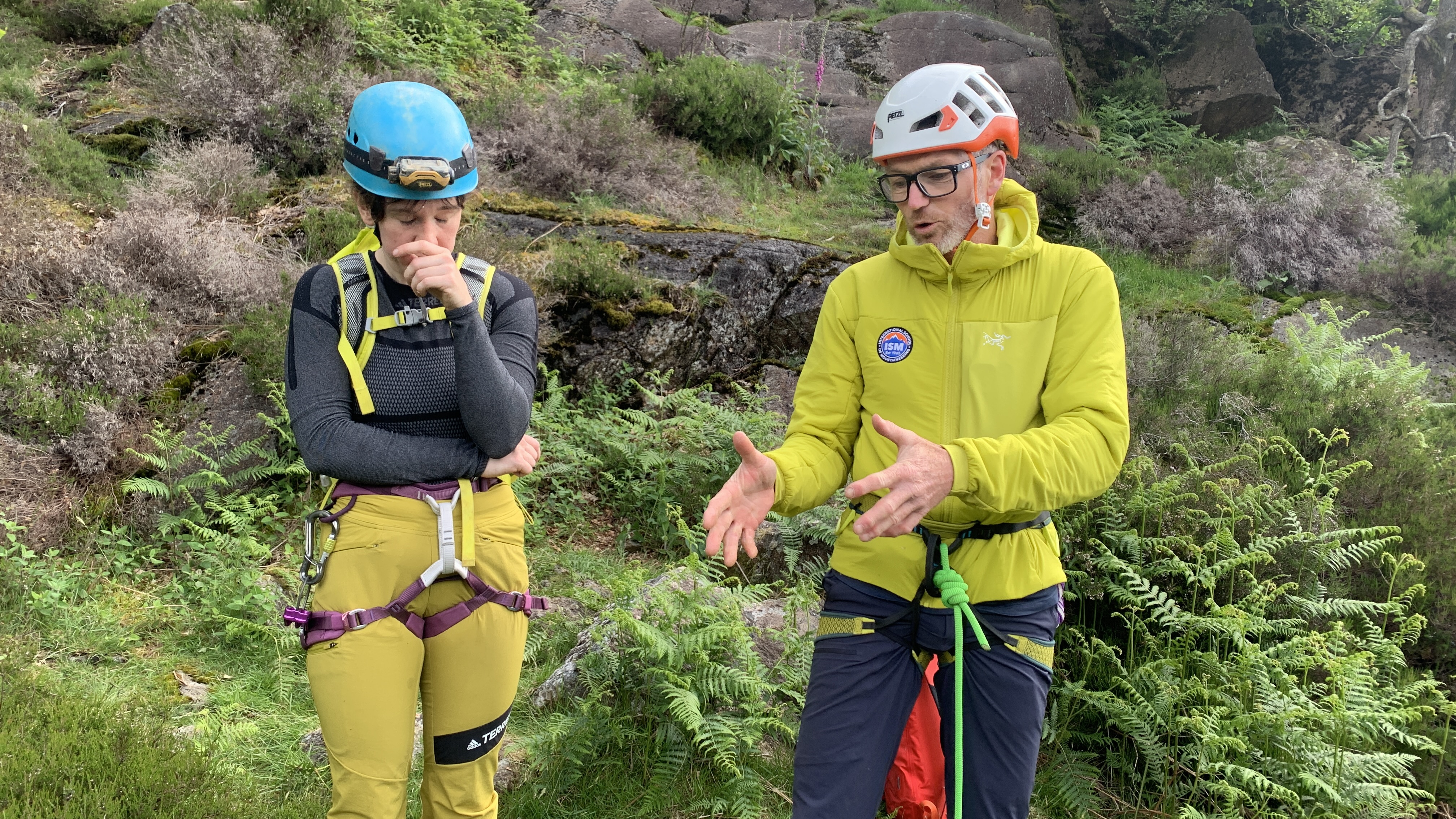
We hike to the ridgeline near Holme Fell which we’re going to spend the next couple of hours scrambling up using ropes, which is a new technique for me. We get our harnesses on and start with a quick refresher on tying a figure-eight knot. Then we’re paired up, roped together and start learning how to stay close, lead each other and use natural anchors like rocks and trees to secure our partners.
“Scrambling’s pretty serious whether you’re doing an alpine rocky ridge or scrambling here in the lakes so today we’ll think about looking after ourselves and introduce the use of ropes to help safeguard us over this kind of ground and maybe give us a bit more confidence,” explains Adrian Nelhams.
He’s our guide for the day and also the Director of the International School of Mountaineering – the event abounds with pros and elites, it’s just that they’re here in the fray with the rest of us mere mortals, getting stuck in and showing us the essentials.
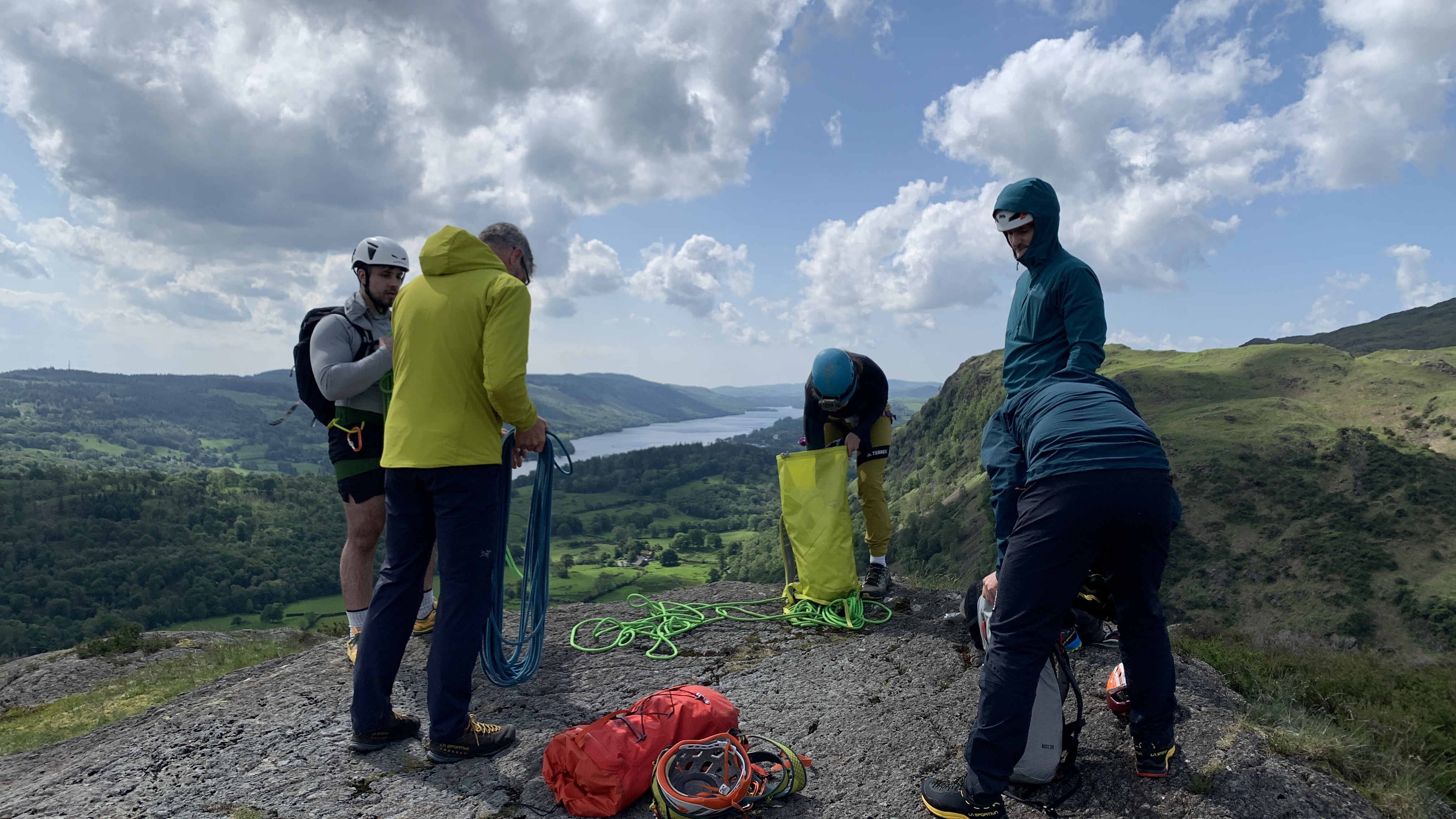
The Academy isn’t just skills clinics – there are film screenings and diverting lectures, too. That evening I listen to Dr Natalie Brown, an athlete and researcher at Swansea University, discuss how to stay active through your menstrual cycle. In the morning, I rise a little early for a sunrise yoga class guided by a local teacher and stretch out my tired muscles. Then it’s time for one more clinic: outdoor bouldering, another activity I’m brand new to.
Our small group carries the crash pads for the five-minute walk over to the rock formations we’ll be practicing on and I get to know some new people, including students from China who were keen climbers back home but don’t see so much time on the rock while they’re living in London.
Our guide shows us each problem, then has each of us try it several times before progressing to the next, more difficult one. Up above us, another group refines their trad climbing skills on a cliff side. The mood is high even though the weather isn’t exactly playing ball. A steady rain slowly soaks the granite and we huddle under a shelf beneath turns.
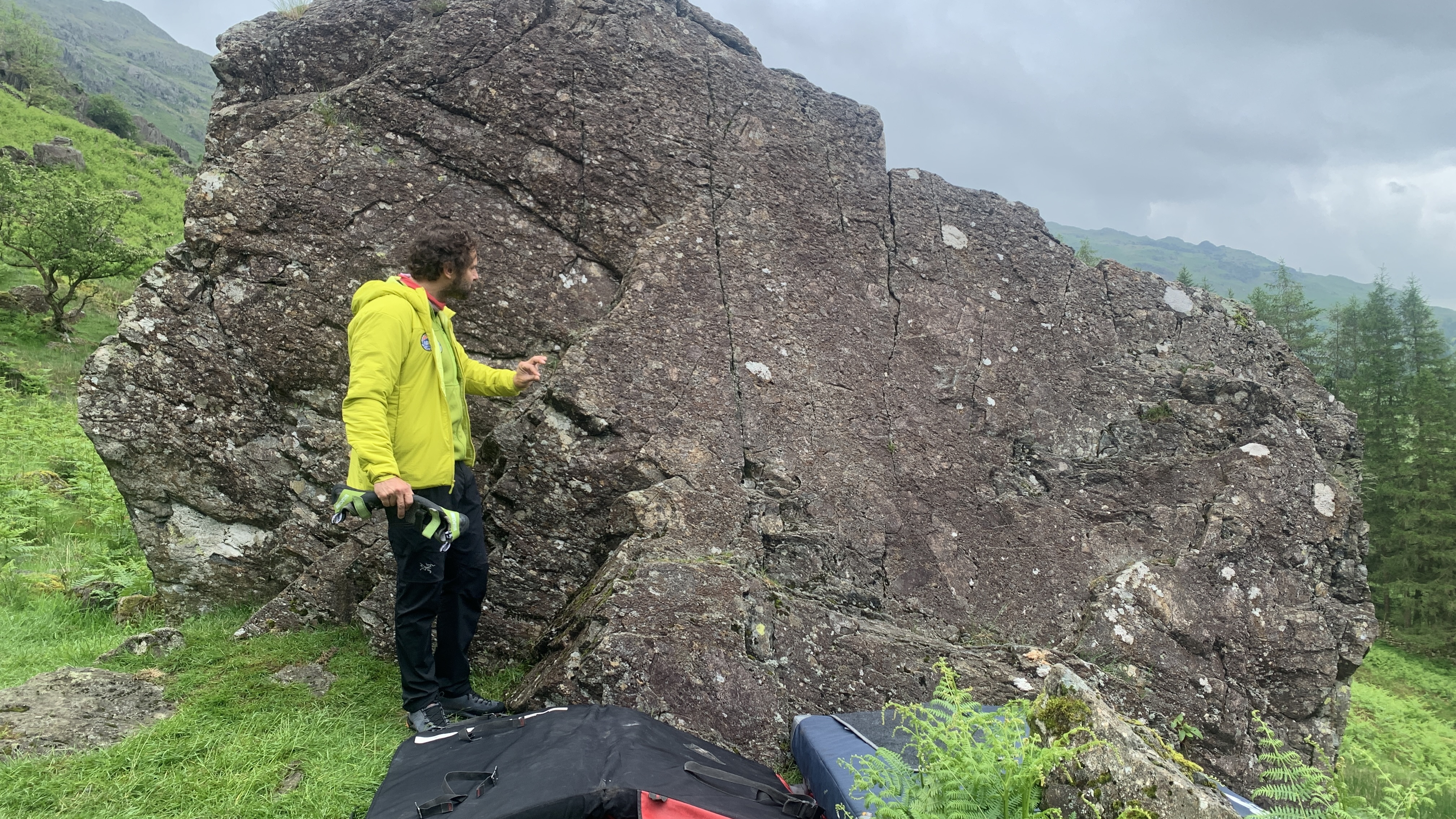
Arc’teryx might be able to remove a lot of the blocks to climbing with its Academy series, even if you can't afford their gear. Between public transport and carpooling, most people can get here and camping makes it an affordable trip to a location that’s otherwise pricey.
Once you’re here, you’ll find access to gear and clinics suited to whatever level you’re at. But there’s only so much you can do about the weather. At least I’ve got my new Arc’teryx Beta LT jacket to keep me dry, I think, right before I bail and head to the pub.







